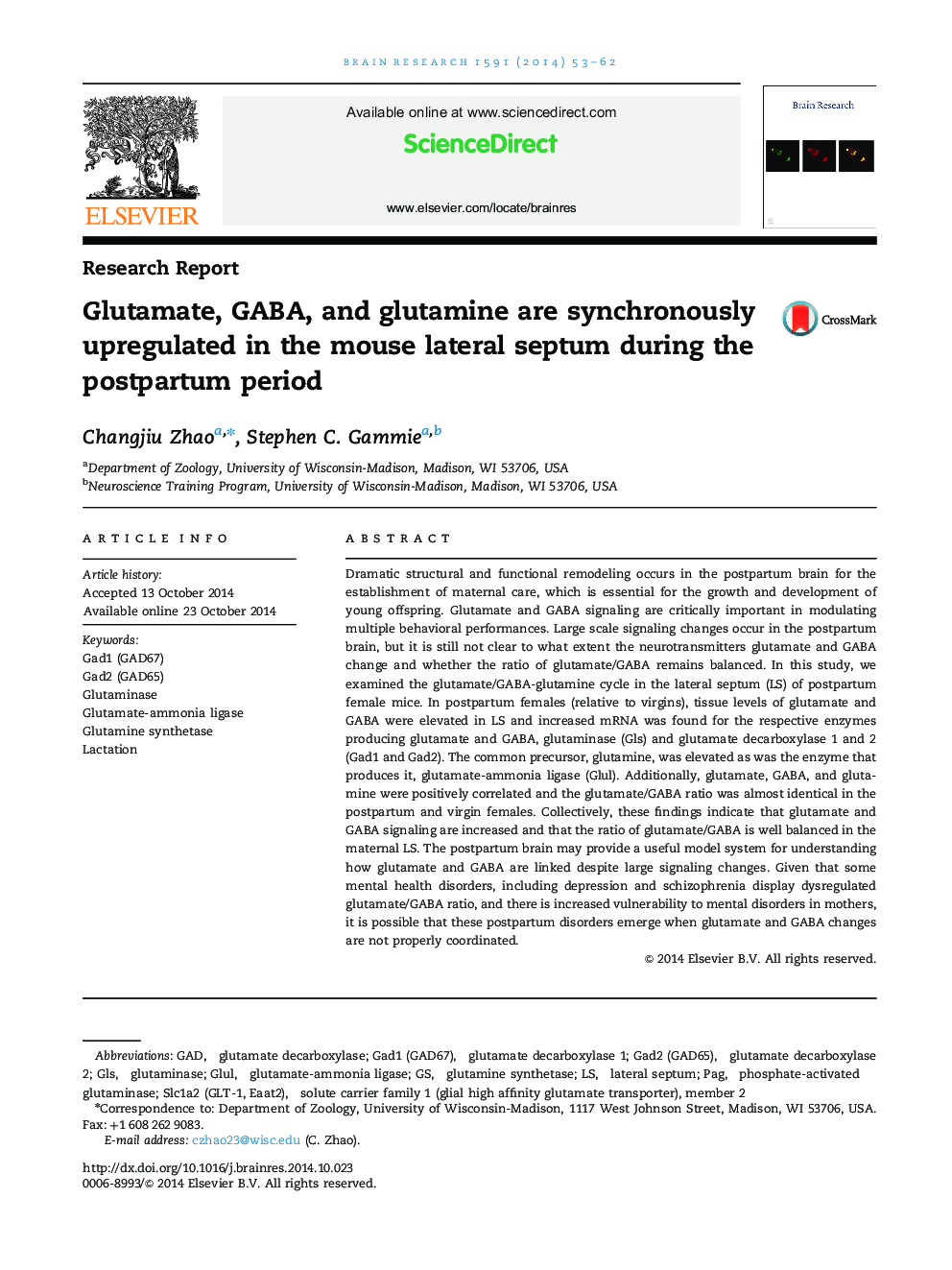| Article ID | Journal | Published Year | Pages | File Type |
|---|---|---|---|---|
| 6263222 | Brain Research | 2014 | 10 Pages |
â¢Neuronal glutamate synthesis was enhanced in LS during the postpartum period.â¢Neuronal GABA synthesis was elevated in LS during the postpartum period.â¢Astrocytic glutamine synthesis was heightened in LS during the postpartum period.â¢There was a positive correlation between tissue levels of glutamate and GABA.â¢Ratio of glutamate to GABA did not differ between postpartum and virgin females.
Dramatic structural and functional remodeling occurs in the postpartum brain for the establishment of maternal care, which is essential for the growth and development of young offspring. Glutamate and GABA signaling are critically important in modulating multiple behavioral performances. Large scale signaling changes occur in the postpartum brain, but it is still not clear to what extent the neurotransmitters glutamate and GABA change and whether the ratio of glutamate/GABA remains balanced. In this study, we examined the glutamate/GABA-glutamine cycle in the lateral septum (LS) of postpartum female mice. In postpartum females (relative to virgins), tissue levels of glutamate and GABA were elevated in LS and increased mRNA was found for the respective enzymes producing glutamate and GABA, glutaminase (Gls) and glutamate decarboxylase 1 and 2 (Gad1 and Gad2). The common precursor, glutamine, was elevated as was the enzyme that produces it, glutamate-ammonia ligase (Glul). Additionally, glutamate, GABA, and glutamine were positively correlated and the glutamate/GABA ratio was almost identical in the postpartum and virgin females. Collectively, these findings indicate that glutamate and GABA signaling are increased and that the ratio of glutamate/GABA is well balanced in the maternal LS. The postpartum brain may provide a useful model system for understanding how glutamate and GABA are linked despite large signaling changes. Given that some mental health disorders, including depression and schizophrenia display dysregulated glutamate/GABA ratio, and there is increased vulnerability to mental disorders in mothers, it is possible that these postpartum disorders emerge when glutamate and GABA changes are not properly coordinated.
